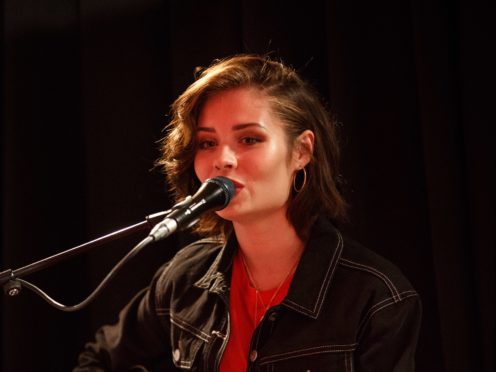Scottish singer-songwriter Nina Nesbitt has said she eschewed doctors as she fought depression and anxiety as a teenager.
The musician, who released her sophomore album The Sun Will Come Up, The Seasons Will Change in February this year, said she found other tools to treat her mental illness.
Nesbitt, 25, was diagnosed with anxiety disorder aged 16 and the condition grew worse as she began to regularly perform in public.
Speaking on the Elevate Music podcast, Nesbitt said the best remedy had been speaking to friends in the music industry.
Nesbitt said: “I went to CBT (cognitive behavioural therapy) when I was 16 and it was really helpful.
“Now I look back at when I was depressed and realise it was very situational so I didn’t think going to the NHS – as wonderful as they are – would help.
“It felt like speaking to the people in the industry who understood what I was going through would be better. Like speaking to my manager, writer friends really helped, and just writing myself was really helpful.
“I would write in a lot of diaries, I wrote a lot of goals, mood boards, I just dived right into it and it really helped me.”
Nesbitt, who has written for Jessie Ware and The Shires, said female pop performers had to deal with markedly more pressure.
She said she often felt she was on a “conveyor belt” and that she had “a shelf life” as an artist.
“A lot of artists I know have gone through exactly the same thing,” she said.
“Especially female artists that do pop, it’s so much pressure as it’s very competitive and often feels like a conveyor belt.
“When I started out it was: ‘You have a shelf life.’ That was literally how I felt.
“It would be good for young artists to have someone to talk to, who understands the industry if they are going through it.”

Her recent success, she said, helped her to recognise her self-worth.
She said: “I’m winding down after this album campaign which just hit half a billion streams, it’s made me realise that anything is possible in this industry.
“But I’m also now trying managing the level of expectation and pressure I put on myself. I’m trying to protect myself a bit more, have a day off, do something that doesn’t involve music.
“I need a lot of sleep and often feel like that’s the main catalyst for struggling with my mental health so I try to get eight to 10 hours a night.”
The Elevate Music podcast – which aims to inform musicians about the industry’s health and well-being challenges – is supported by the Help Musicians charity and presented by industry researcher Lucy Heyman.
